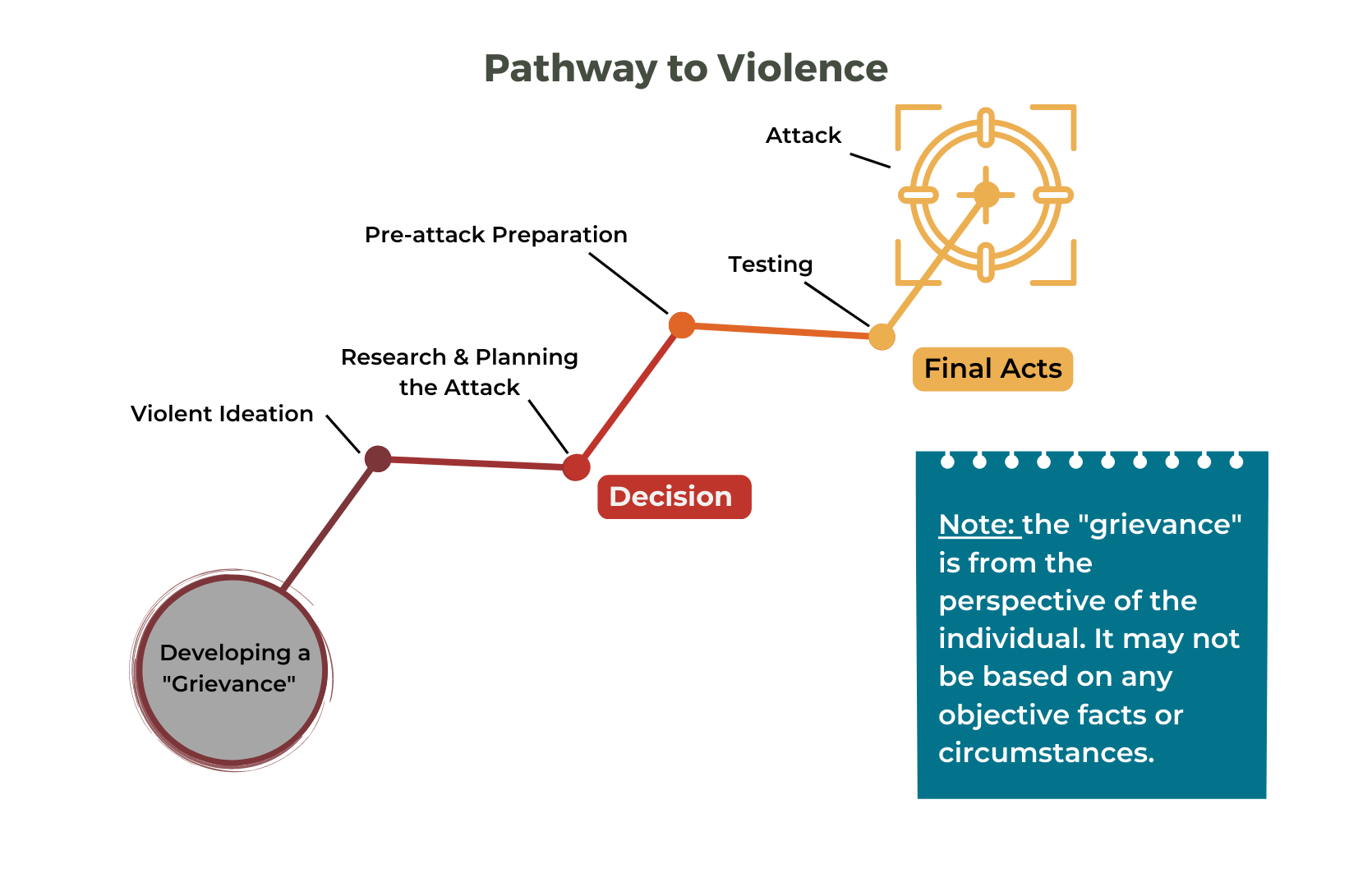Behavior Threat Assessment procedures are implemented in all Maryland schools and used to prevent school-based violence. Maryland school leaders and behavioral support staff have the knowledge and experience to conduct a thorough inquiry when receiving a report of concern about an individual who may pose a threat to an individual, group of individuals, and school. All credible concerns are evaluated by a multidisciplinary team consisting of pertinent personnel and external partners such as local law enforcement and community-based behavioral health partners. This team gathers information that allows them to determine the level of threat. The determination made by the team prompts school personnel, and when appropriate, community-based partners, to take the appropriate steps to protect a targeted individual, group of individuals, or school, and develop interventions for the individual displaying behaviors of concern to reduce the threat and address the underlying causes of the behavior. This process relies upon bystanders REPORTING behaviors of concern. 
MCSS seeks to remain abreast of new knowledge emerging from experts in the field of behavior threat assessment in order to develop resources and provide information to Maryland schools that informs practices. The Center promotes the use of a public health-informed approach to violence prevention. This brief video, published by the US Department of Homeland Security, explains this emerging approach.
The following resources, tools, and learning opportunities are currently available to all Maryland public, nonpublic, and private schools.
2023 BTA Implementation guide link ( Download pdf)
Download pdf)
(NEW!)2024 Implementation Guide EXPANSION link ( Download pdf)
Download pdf)
What is Behavioral Threat Assessment?
Behavioral Threat Assessment (BTA) is a fact-based, systematic process designed to recognize, inquire, evaluate, and intervene to prevent violence. BTA is crafted to gather a holistic picture of an individual who may be on a pathway to violence and to design a plan to mitigate harm and intervene effectively.
What Behavioral Threat Assessment is NOT?
- Behavioral Threat Assessment is NOT a simple checklist of warning signs and red flags.
- Behavioral Threat Assessment is NOT criminally profiling individuals or conducting psychoanalysis.
- Behavioral Threat Assessment is NOT used to label students as troublemakers.
- Behavioral Threat Assessment is NOT used as a means to remove students from school systems.
- Behavioral Threat Assessment is NOT used to find the next school shooter.
BTA Team Training Tools
The purpose of this exercise activity is to prepare Behavior Threat Assessment (BTA) team members to: effectively perform their individual roles and responsibilities, collaborate as a member of the team, and consider information that culminates in a decision. Participants will use a tabletop activity to practice the steps and decision-making involved in an evaluation.
The effectiveness of the BTA multidisciplinary team requires that all members have received knowledge of expectations and their roles in advance and have had the opportunity to practice collaborating to reach a decision. The following exercises are designed for use by BTA teams who have already engaged in professional learning about the behavior threat assessment process. Teams should scaffold their collaborative practice by starting with simple exercises and then moving to complex scenarios.
Simple Exercises are designed without any interjects of new and evolving information.
More Complex Exercises are designed with just one interject of new and evolving information for the team to practice responding to when conducting an evaluation.
Most Complex Exercises are designed to have multiple interjects of information and evolving events for the team to practice responding to when conducting an evaluation.

